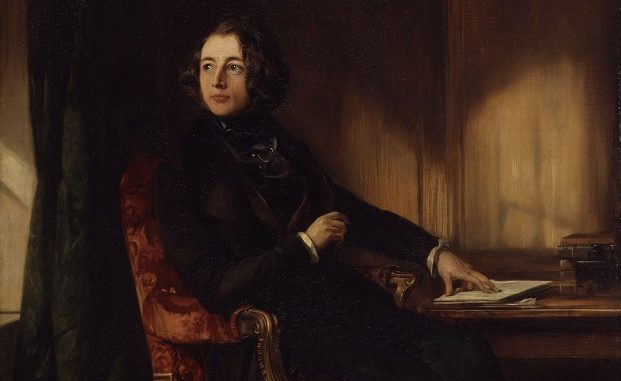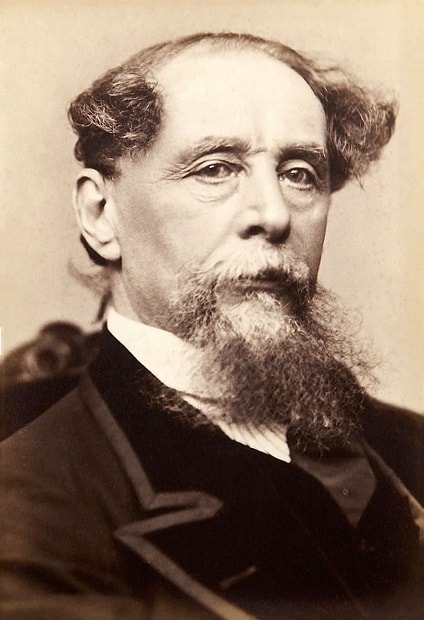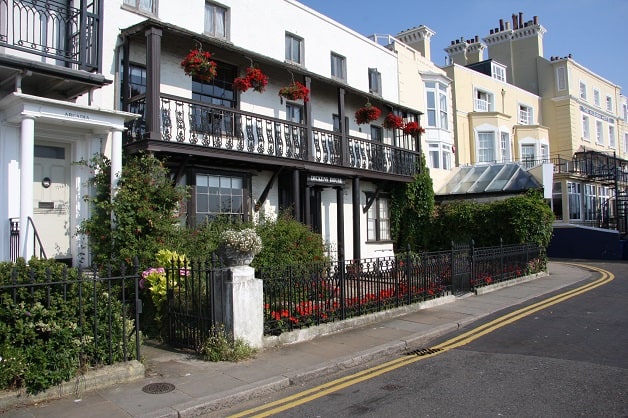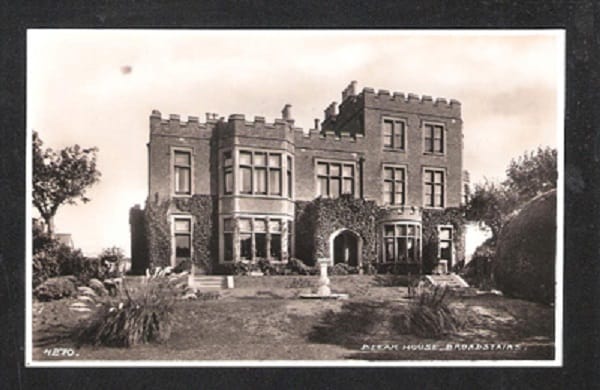
By Chris Ewer and Ken Nickoll, Dickens Fellowship, Broadstairs
Plans to hold a church service at Holy Trinity, Broadstairs, next month to mark the 150th anniversary of the death of Charles Dickens have had to be postponed because of the Covid-19 pandemic.
The event, organised by the Broadstairs branch of the Dickens Fellowship – a worldwide association of Dickens’ enthusiasts – was also to have included a cream tea together with a reading from the writer’s last but unfinished novel, The Mystery of Edwin Drood, performed by the Dickens Declaimers.

Branch secretary Chris Ewer said while members were disappointed by the decision, it was hoped to reschedule the commemoration to a later date, when Government restrictions on public gatherings have been lifted.
Chris explained why celebrating the anniversary of Dickens’ untimely death at the age of 58 meant so much to the branch.
She said: ‘Broadstairs played a huge part in Dickens’ life. He visited here with his family and friends at least 19 times between 1837 and 1862, often staying for months at a time. He once described the resort as ‘this pretty little semi-circular sweep of houses tapering off at the end of the wooden pier . . . ’
“And it was important to him, too, as an inspiration for his writing. Amongst the books he wrote whilst renting houses or apartments here were The Pickwick Papers, Nicholas Nickleby, The Old Curiosity Shop, Dombey and Son, David Copperfield and A Tale of Two Cities. And one of his best-known fictional characters, Betsey Trotwood, was based on eccentric Broadstairs resident Mary Pearson Strong.
“She lived on the seafront and would chase away the donkey boys as they rode their animals across the grass in front of her cottage. Dickens witnessed this many times and wove it into his Copperfield storyline.”

Today Miss Strong’s cottage is home to the Dickens House Museum in Victoria Parade.
Dickens’ death, on June 9, 1870, not only sent the whole country into mourning, Mrs Ewer says it also caused an unseemly tug-of-war over where, and how, his mortal remains were to be laid to rest.
She said: “His will was very explicit. It stated, ‘I emphatically direct that I be buried in an inexpensive, unostentatious and strictly private manner . . . that those who attend my funeral wear no scarf, cloak, black bow, long hat band, or other such revolting absurdity . . . I conjure my friends on no account to make me the subject of any monument, memorial or testimonial whatever. I rest my claims to the remembrance of my country upon my published works and to the remembrance of my friends upon their experience of me . . .’

“History shows his instructions with regard to his place of burial were ignored. Popular opinion, led by Queen Victoria and The Times newspaper, pressurised the family into agreeing he should be buried in Poets’ Corner, Westminster Abbey.
“The funeral service, however, was low key in keeping with his wishes, with just immediate family and lifelong friends in attendance. There were no hymns and no eulogy. Afterwards the public were allowed in to view the open grave.
“More than 2,000 mourners visited on the first day and many more queued on subsequent days to pay their respects and fill the grave with flowers.
“Some may be surprised at Dickens’ wish to have a humble, low-key funeral but he was first and foremost an intensely private man who championed the oppressed, the poor, the downtrodden and the forgotten in his many novels. Their stories echoing down the years to us here in the 21st Century, are testament to the social changes he brought about with humour and pathos.”

Chris believes next month’s anniversary of Dickens’ death will see a worldwide celebration of the author’s literary legacy by the millions who still love his books. But says none will feel so proud and honoured as his Broadstairs’ admirers.
“June 9 will feel extra special here in Broadstairs, the seaside resort where one of the world’s greatest writers chose to live for nearly two years of his life and which he called his ‘blessed spot’.”
In the summer and autumn of 1851, whilst spending four months in the town, Dickens wrote an essay about Broadstairs called Our English Watering Place.
Its concluding paragraph sums up his deep affection for the resort: “And since I have been idling at the window here, the tide has risen. The boats are dancing on the bubbling water, the colliers are afloat again; the white-bordered waves rush in, the children do chase the ebbing Neptune and do fly him when he comes back; the radiant sails are gliding past the shore and shining on the far horizon; all the sea is sparkling, heaving, swelling up with life and beauty, this bright morning.”
Charles John Huffam Dickens (1812 – 1870)

